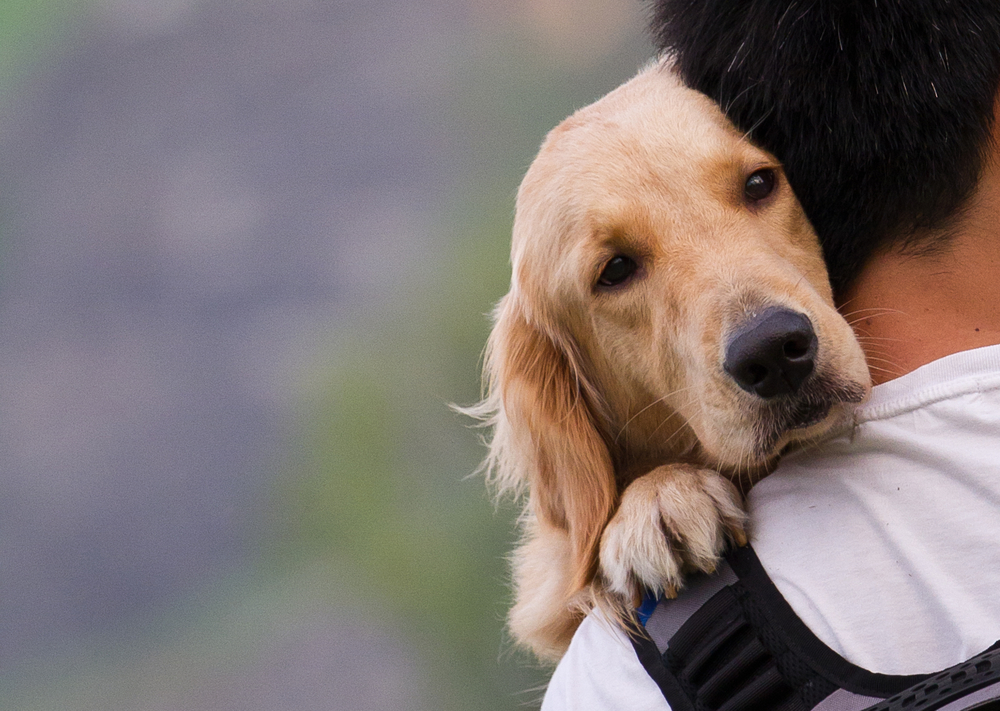A new study from researchers at Japan’s Azabu University may contain the key to understanding the timeless bond between humans and dogs — and it has to do with the most basic kind of connection. According to the researchers, when humans and dogs look into each other’s eyes, each participant experiences a surge of oxytocin, the hormone associated with trust and love that is released that is largely responsible for maternal bonding.
To test their theory, the researchers observed 30 dog owners interact with their dogs and then measured how much oxytocin the dogs produced via urine tests.
The Guardian’s Ian Sample reports:
Urine tests before and after the session revealed that oxytocin levels spiked in people whose dogs stared at them the most. But their dogs experienced a similar effect, with their own oxytocin rising too. When the scientists repeated the experiment with hand-raised wolves, the effect was nowhere to be seen.
They went on to perform a further experiment. This time, the researchers sprayed either salt solution or a dose of oxytocin up the dogs’ noses before watching them in a room with their owners. Dogs that had received the hormone boost stared for longer at their owners, though the effect only stood out in females. Again, tests on the owners found that the longer their dogs gazed at them, the higher their oxytocin levels rose. Why the effect was so vivid in females, but not in males, will become the focus of future research.
Another study published in PLOS One last year found that interspecies parenting (or “alloparenting”) can be very similar to parenting your own baby, with brain regions associated with emotion, reward, affiliation and social cognition lighting up in similar ways when women looked at pictures of their children and their dogs.
In an article accompanying the former study, Evan MacLean and Brian Hare of the Duke Canine Cognition Center wrote that the results could have larger implications.
“In addition to providing clues about how dogs became a part of human history, the results also help elucidate the proximate mechanisms through which our relationships with dogs may be salubrious,” they wrote. “An important future challenge will be to probe the extent to which these findings generalize to diverse populations.”


